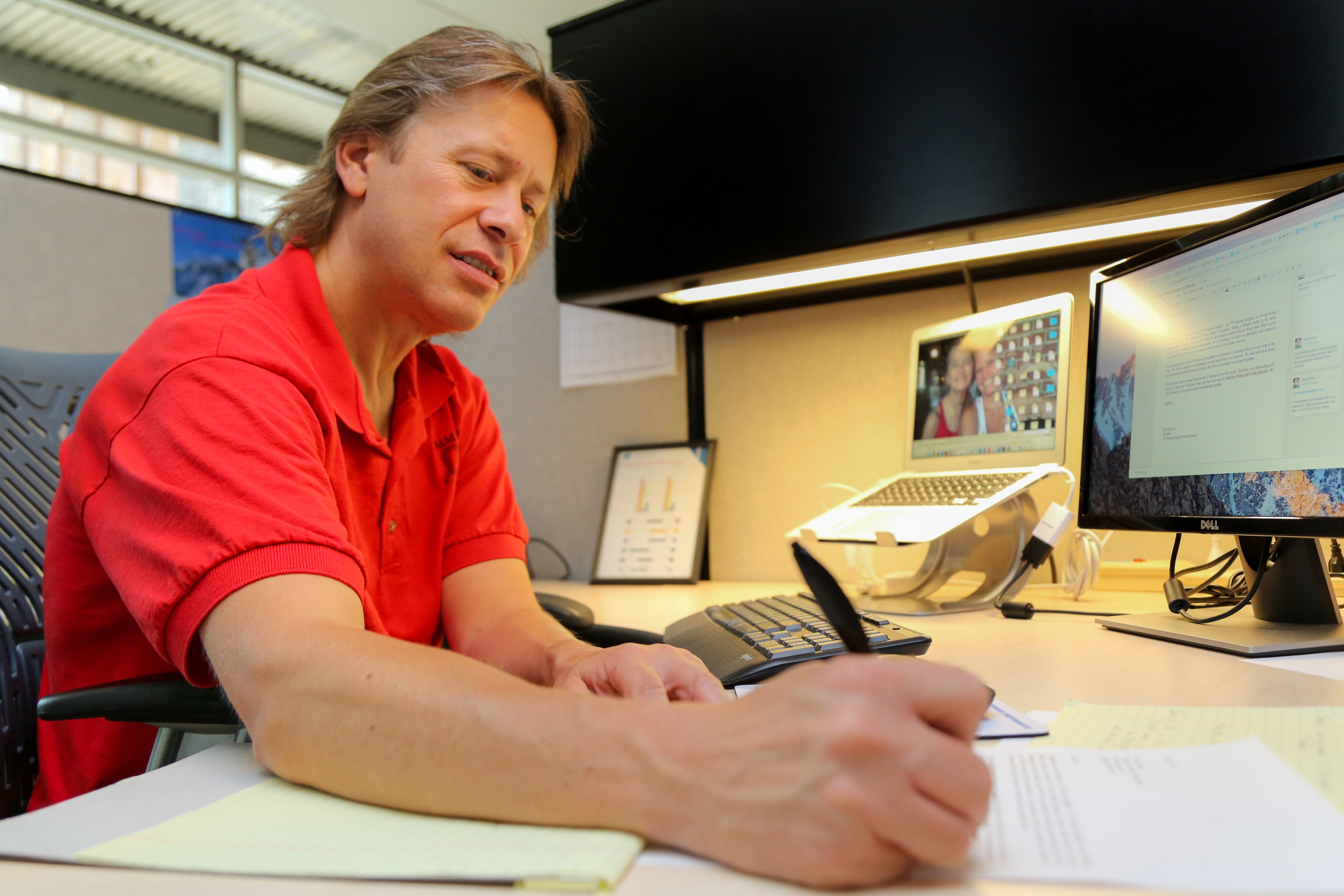 Don't go it alone. If you are envisioning moving up the corporate ladder into a position of authority, finding a mentor as early as possible can be the key to accomplishing your goal. We can have all the ambition in the world, but without a plan and some guidance from someone who has been there, we may struggle to achieve our goals. Finding the right mentor is essential because this person has done what you want to do. They know the ropes and have already traversed the path which you are just starting down. Use their experience, expertise and guidance to help you create your own path to achieving your goals.
Don't go it alone. If you are envisioning moving up the corporate ladder into a position of authority, finding a mentor as early as possible can be the key to accomplishing your goal. We can have all the ambition in the world, but without a plan and some guidance from someone who has been there, we may struggle to achieve our goals. Finding the right mentor is essential because this person has done what you want to do. They know the ropes and have already traversed the path which you are just starting down. Use their experience, expertise and guidance to help you create your own path to achieving your goals.
The workforce model is changing daily. What was once a traditional brick and mortar building that housed the same workers for decades is being replaced with virtual offices spread across the globe. Workers of all backgrounds and levels of expertise now interact both in person and virtually to create this new dynamic workforce. With a dynamic workforce, one needs dynamic mentoring to navigate through the ins and outs of the company not just to get by but to succeed in the long term.
Formal versus information mentoring
Mentoring can be done in a casual, “use as needed” approach or in a very structured, formal setting. Both are effective and highly recommended but they look much different and serve different purposes.
Formal mentoring is structured and planned. A newer employee is connected with a seasoned veteran to learn the ropes in a formal setting. Typically, formal mentoring starts out by setting expectations and putting those expectations down on paper in the form of an action plan. The first thing to figure out is what is the mentees short and long term goals? What do they hope to accomplish from this mentorship? And, what niche can they fill within the company as a result of learning from the mentor? Once a plan in enacted, specific meetings are scheduled. These meetings can be in person, by phone, virtual or otherwise, but the key is that they are regularly scheduled meetings. The mentee is expected to come prepared and ask many of the questions. While the mentor can guide, the mentee should be driving the meetings forward with a proactive approach.
Typically, some sort of tracking occurs to ensure the mentee is on track and getting value from the process. This is also true for the mentor; they don’t want to waste their time; they want to be sure the time spent is for good reason. Success is tracked, and the learning moves forward.
Informal mentoring is more on a “need to know” basis. There is no official plan, no structured meetings, just knowledge sharing when a specific type of knowledge is needed. Like formal mentoring, this can take any form, whether in person or otherwise, and can be between peers, with those more advanced in the organization or with a supervisor. The key difference is the lack of structure compared with formal mentoring.
How to start the process of finding a mentor
Regardless if you plan to have a formal or informal approach, going about the process is relatively similar. First and foremost, it’s up to the mentee to identify their potential mentor. This may come in the form of a recommendation from their supervisor or a co-worker, but the mentor often times is not the mentees direct supervisor. Identifying the goal of the mentor/mentee relationship is important, followed by figuring out what form the mentoring process will take. Whether it’s a long or short term proposition, the key is to have plan, make progress together, give each other feedback and move the process forward.
Key roles of the mentor
Employees need to be connected to the company mission. The mentor helps to clarify this very important direction. Employees also want to have a connection with their co-workers so they don’t feel like they are alone on an island. The mentor can facilitate key introductions to help move the mentee forward. And, employees want to have a productive and favorable relationship with their boss, and the mentor can serve as that intermediary at times when it is needed most.
The mentor helps the new employee navigate the organization and also make key connections. They have familiarity with the organization so they can speed up the new employee’s learning curve by letting them know what they need to know to survive and thrive in the organization. The mentor becomes the “street” as the new employee learns “street smarts.”
Mentors are the leaders of today. But it’s always important to continue to groom the next set of leaders. By taking on a mentoring role, the mentor is doing their part to create the next generation of leaders. This “pay it forward” mentality is crucial to the long-term success of any company. If successful workers begin to teach as they themselves continue to learn, the company continues to move forward in a positive direction.
Tracking Success
Create short and long term measures, including the expected time commitment, so both the mentor and mentee will be able to determine if the process was successful. It’s a great idea, especially in a formal mentoring process, to create a MAP (a Mentoring Action Plan). Together, discover development opportunities and actively seek out those opportunities as soon as possible. These can include anything from becoming part of a planning committee, to public speaking opportunities to engaging in projects with co-workers. The mentee needs to apply the learned skills on the job as they learn them. Learning means nothing without action, so applying the learning is essential for success. Finally, take a look in the rear view mirror and see how it went. Were the goals accomplished? Has the mentee ascended through the ranks at the company? Don’t forget to celebrate your victories!
If executed correctly, the mentee will gain such a knowledge base from the mentor, they will take charge of their position, elevate to other higher positions, and soon become a mentor to the next generation of workers. Now it’s their turn to pay it forward, and chances are, they will be more than willing to do so when they think back to what a huge help their mentor was for them when they were just starting their career.



